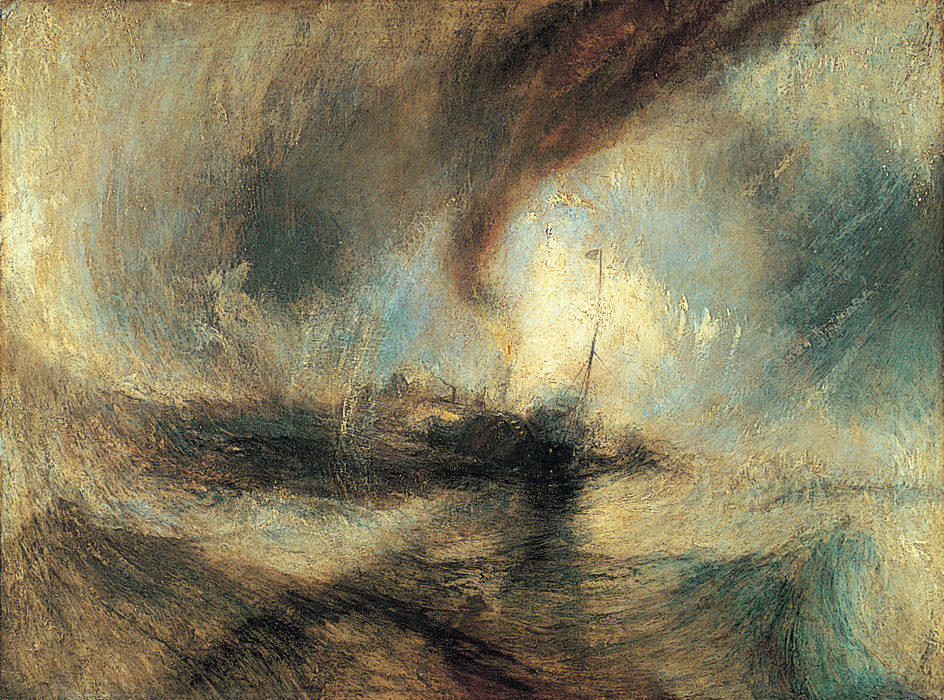Turner, J. M. W. (1775-1851), was perhaps the greatest landscape painter in the history of British art. In many oil paintings and water colors, Turner departed from traditional ways of dealing with atmosphere, light, and color. Earlier artists had treated such elements realistically. In Turner’s works, forms and outlines seem to dissolve into shimmering mist, steam, or smoke, or into the intense light of bright sky or water. An example of this style, Snowstorm, Steamboat off a Harbour’s Mouth, is included with this article. By changing the way artists represented reality, Turner began a process continued by the Impressionists and many other artists of the late 1800’s and the 1900’s.

Joseph Mallord William Turner was born on April 23, 1775, in London. He began art training at the Royal Academy of Arts at the age of 14 and became an accomplished water-colorist. His early style shows the influence of the British artists J. R. Cozens and Thomas Girtin. The young painter was also influenced by the landscapes of the French painters Nicolas Poussin and Claude. Beginning in 1790, Turner exhibited at the Royal Academy. He was elected a member of the academy in 1802.
Turner’s early paintings emphasize drama and romance. His oil painting The Shipwreck (1805) is an example. Later in his career, Turner stressed atmosphere in his pictures. He traveled widely, producing thousands of water-color sketches. In many of these sketches, he experimented with the brilliance of color. During the 1830’s and 1840’s, Turner painted a series of water-color views of Venice that rank among his masterpieces. He achieved a colorful, abstract quality in such oil paintings as Slavers Throwing Overboard the Dead and Dying—Typhoon Coming On (1840) and Rain, Steam, and Speed—The Great Western Railway (1844). Many of his oil paintings show his fascination with the visual effects of fire and water. Turner died on Dec.19, 1851.
See also Ruskin, John .
